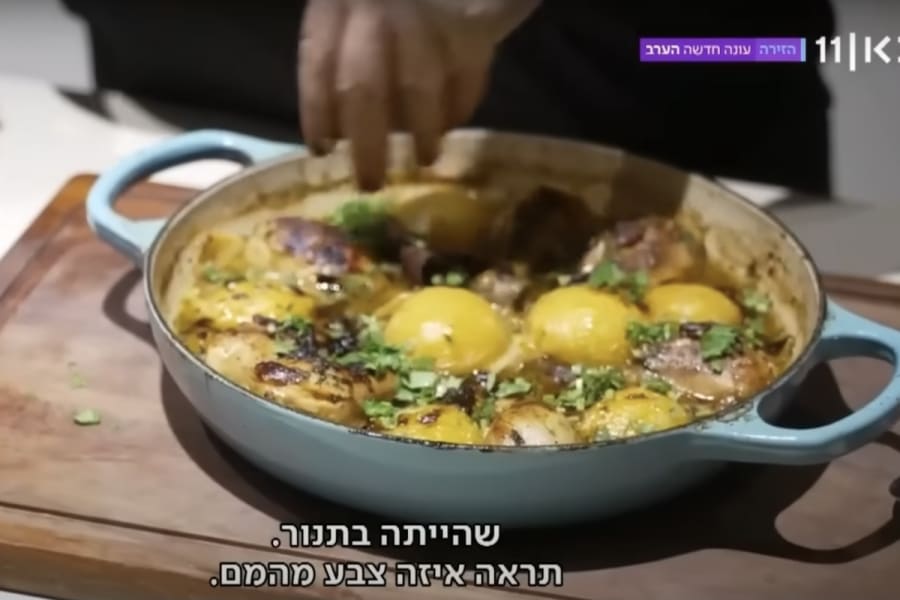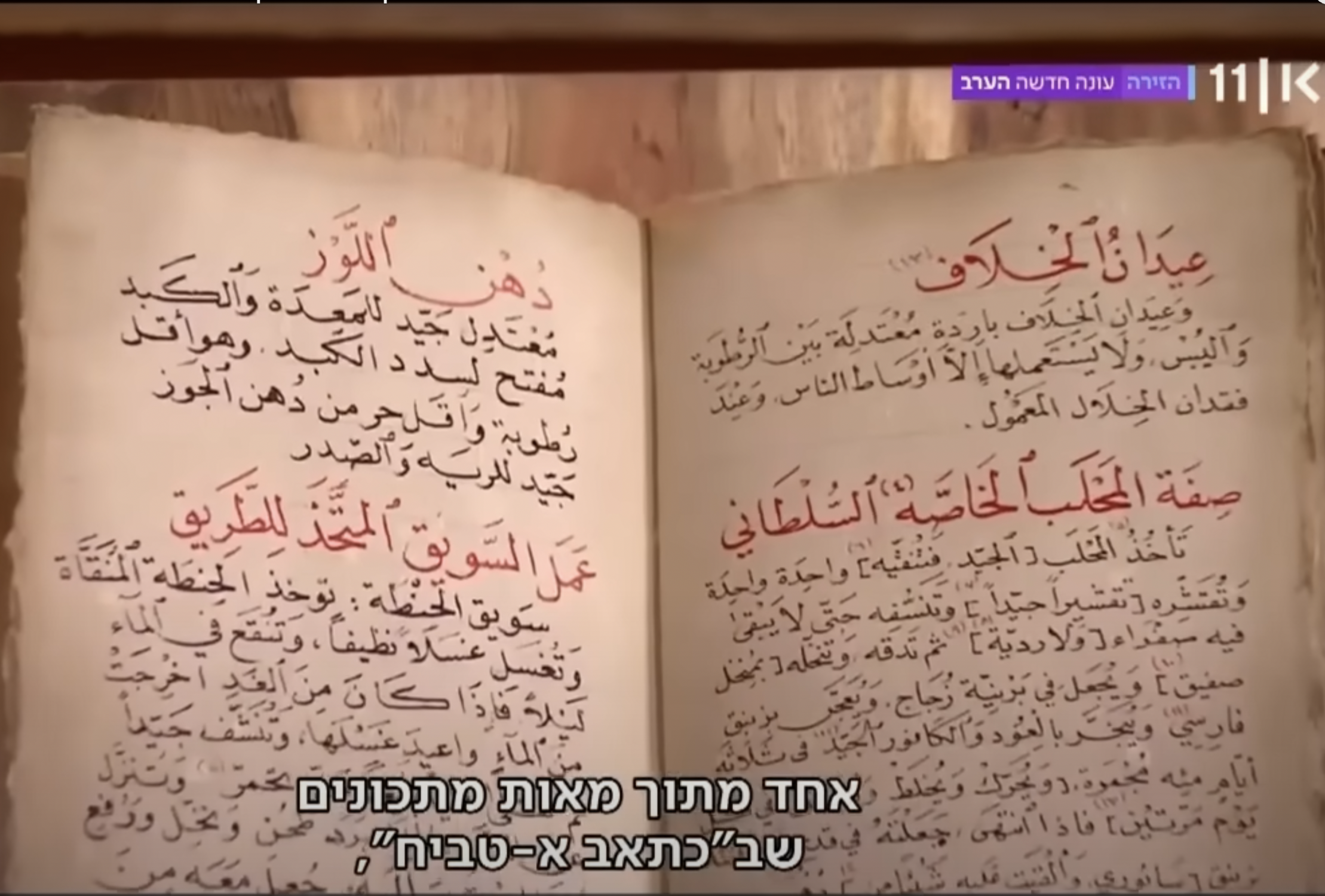Food fit for caliphs: Resurrecting recipes from ancient Baghdad

An ancient Iraqi cookbook has been painstakingly hand-copied and its recipes brought back to life in Israel.
“Tell me honestly, I won’t be offended – it’s not my recipe, it’s the caliph’s” says Dr. Nof Atamna, presenting a chicken and apricot dish called “Mishmishiya” concocted from a thousand year-old recipe. It was apparently delicious. “All honor to the caliph” came the response.
Dr Atamna, a food scientist from Kfar Qara in Israel, has been delving into culinary history using the treasures of an ancient Mesopotamian recipe book.
Atamna describes the “Kitab al-Tabikh,” the cookbook containing hundreds of recipes from the 10th century, as a treasure. It’s the oldest Arabic cookbook in the world, and was written in Baghdad a thousand years ago.
While the original manuscript, handwritten by Ibn Sayyar al-Warraq, is kept in Finland, she explained how they went to great lengths to produce an exact replica for use today in Israel.
“We decided not to stray from the original and we took the recipes and the book and went to a khattat, a calligraphy artist who writes Arabic by hand, and he simply wrote it all for us,” she said.
Dr. Nof Atamna, an accomplished chef and also a researcher in the field of microbiology, has taken on the challenge of deciphering the ancient recipes and adapting them for today’s kitchen. She cooks up “food for the future” using ancient recipes, recreating them just as they were made a thousand years ago.
Today, nearly all the ingredients called for in ancient recipes can still be found in Israel and in Judea and Samaria (internationally known as the West Bank). From rock-like resin harvested from local trees and ground into dishes, to amber used to glaze pastries, Atamna is able to find everything she needs to recreate these time-honored recipes.
She also grows many ingredients at her home. Atamna is from the Arab town of Kfar Qara, just east of Caesaria, but has bought a house in Rawabi near the West Bank city of Ramallah due to the serious crime problems in her Arab village.
“Here I have strawberries and watermelons. As for trees: mango, pomelo. Some of the spices…” she says, explaining that she insists on organic. “I have no problem sharing with the birds and snails – we share. They don’t share the water bill with me, but we share the produce.”
She hosts a program about the endeavor, “The Cookbook,” on Israel’s Kan 33 Channel.
“We took from the book the recipes we selected, some that are more familiar, some less familiar, and essentially built a cooking show around them, where in each episode there’s a certain theme and we always host a guest connected to the theme of the episode. We put a lot of effort into it,” she says.
On the show they explore the traditions and customs of the Abbasid period and the Arab cuisine with Dr. Samir Kattani, an expert in Arabic literature and heritage.
“I think that anyone who really wants to flourish and develop and build a future for this cuisine, needs to master very well also the past of this cuisine,” says Atamna. “First of all, you should know how to cook jachnun like your grandmother, very well and very precisely, only then can you build a future for this dish. Without knowing the foundation, you can’t understand the present, and you can’t build the future.”

And it does seem like Dr. Atamna is sharing more than just food through the cookbook enterprise. By exploring the ancient roots of Arabic culture found in the cuisine and traditions, a sense of honor and appreciation for the Arab society today is also being shared.
The ancient recipe for “Mishmishiya,” a chicken and apricot stew, is now enjoying renewed interest. Atamna describes the sauce as an apricot compote, and the process of creating it.
“Apricots that we cooked with water in a closed pot, then we strained them, and now the chicken will cook in this juice,” she explains. “This is the tastiest dish, and soon you and I will be eating food fit for caliphs.”

Jo Elizabeth has a great interest in politics and cultural developments, studying Social Policy for her first degree and gaining a Masters in Jewish Philosophy from Haifa University, but she loves to write about the Bible and its primary subject, the God of Israel. As a writer, Jo spends her time between the UK and Jerusalem, Israel.













